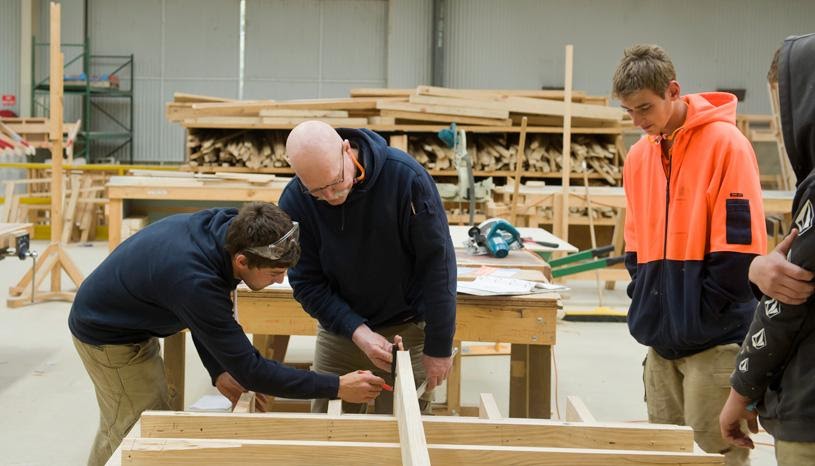There’s no doubt that apprentice carpenters learn a lot on the job, but if you’re someone who has just started out, or are just curious about being a carpenter, you might want to know more about what fully qualified carpenters do. In general carpenters construct, erect, install, and repair structures and fixtures that are related to wood and similar materials. This is a bit of an oversimplification, though, as the different projects carpenters can work on – such as large-scale urban projects through to small-scale kitchen projects – can involve very different responsibilities. In this article, we take a broad look at what happens after a carpenter has finished up their apprenticeship.
Carpentry-related education
Carpentry is a constantly growing industry, so we’ll touch on the education-related aspects first to help inform anyone looking to pursue a carpentry apprentice in Melbourne. Those interested in becoming a carpenter might have already gained an interest in high school after becoming involved in tech classes, and supplementary subjects like algebra and geometry in mathematics might provide some additional handy knowledge. Out of high school people may look into becoming the helper of an experienced carpenter while also attending a trade or vocational school to gain the additional skills required to be a carpenter. Apprenticeships are a form of on-the-job training offered by some employers and typically last 3 to 4 years. Training for apprentices will usually include valuable skills like learning relevant layout, rough framing, form building, and interior and exterior finishing, alongside a better understanding of the tools, machines, equipment, and materials required to complete the job. The classroom aspects of carpentry apprenticeships are just as important, as apprentices will learn very important things like safety, first aid, blueprint reading, freehand sketching, basic mathematics, as well as a wide assortment of carpentry techniques.
Work as a qualified carpenter
After an apprenticeship, a newly qualified carpenter can apply their skills in a variety of forms and environments, and the jobs they go for will typically reflect how they want to apply these skills. Generally speaking, carpenters can either focus on specific, specialised carpentry tasks or more general carpentry tasks. The more specialised tasks are common for carpenters working for specialty contractors that create niche projects. For example, these carpenters might be regularly making scaffolding, creating structures to brace underground in mines or creating concrete forms for bridge or sewer construction projects. Carpenters who apply their skills more generally will often work in home construction, as their skills can be applied to many aspects of a home. For example, these carpenters might have to create partitions, put in doors and windows, build stairs and install cabinets, all in a single job. How you choose to apply your skills is generally up to you, and there’s no reason why you can’t use your skills in different ways across your carpentry career!
Thinking of becoming a carpenter? Kick off your career today
Applying the same core education skills in a variety of ways is just one of the reasons why many start studying carpentry. If you’ve got good manual dexterity and hand-eye coordination, are in good shape and don’t mind mathematical problems, this may very well be the career for you!




